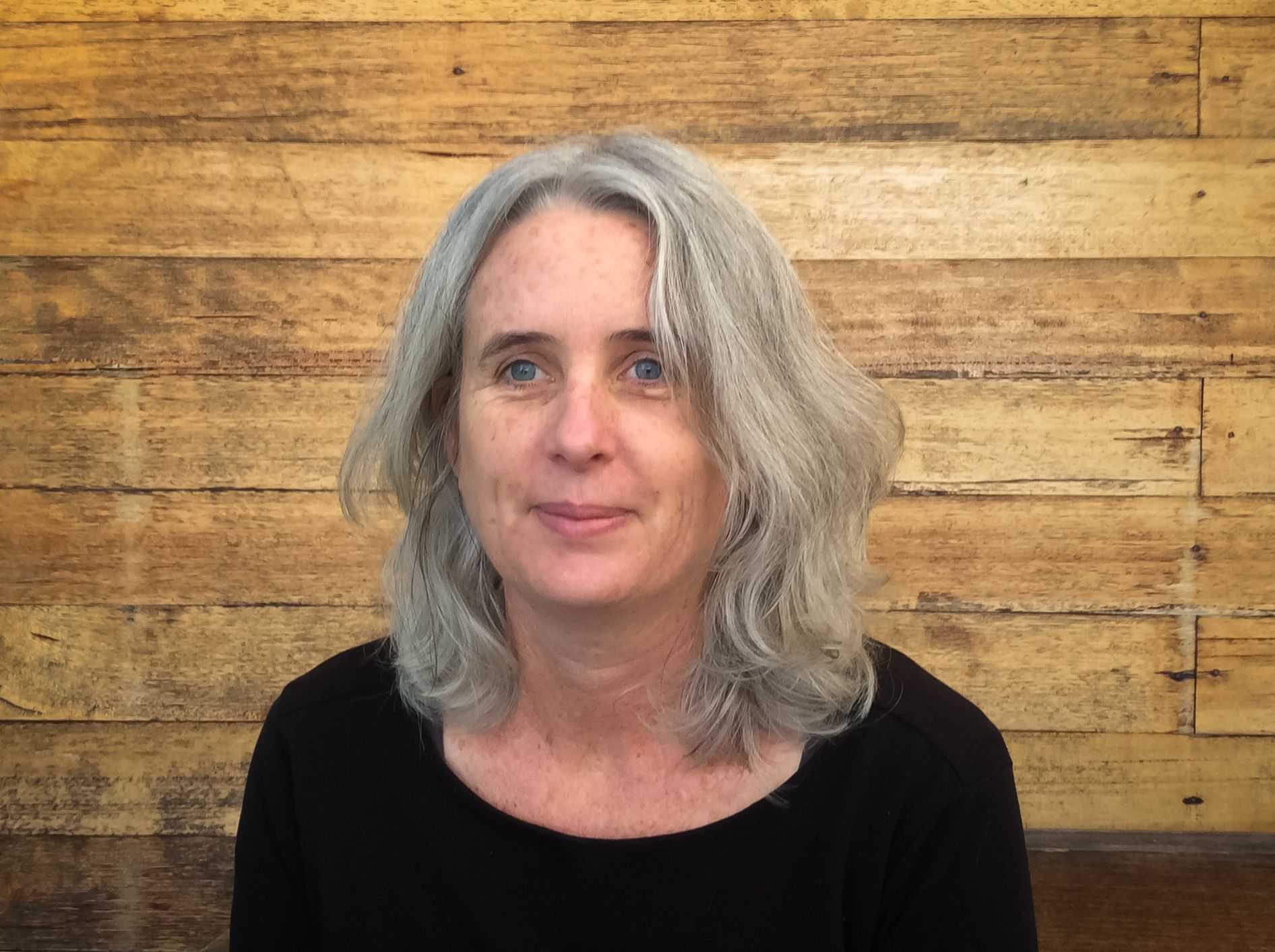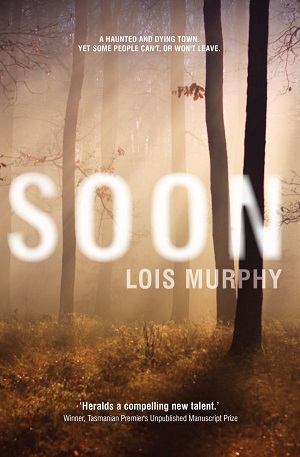
‘Soon’ is the story of the death of a haunted town, and the plight of the people who either won’t or simply can’t abandon all they have ever had. You spent six years driving around Australia in a homemade 4WD truck, writing letters home about the people you met along the way. Did any of these people inspire characters in your debut novel ‘Soon’?
My characters are a bit of a patchwork of various people, no-one was used ‘whole’, but I did steal mannerisms or little things like turns of phrase. And the general resilience and independence of these people leaked into my characters too, especially as a consequence of loss. What did contribute quite a bit to the character of Pete was the situation of a lot of the solitary men we met, who were exiled from society to a degree through being alone, and shiftless. They were seen as a bit dubious, a few of the men we met talked of being shunned by family groups, who viewed them as suspect and weren’t comfortable having them around. For some this was heartbreaking, but for others this rejection worked both ways, and the isolation that resulted from this inability (or refusal) to relate to each other contributed a lot to Pete and his situation. We also met a lesser number of women on the road, who were so independent and interesting, and a few of these were ransacked for the character of Milly, her stoicism.
You say that in capturing life in your writing, you are “creating a chorus that doesn’t sing in harmony, where not all the voices are in tune.” Is this an intentional process, or something you feel happens naturally in your writing?
I guess it’s intentional, I tend to find people who reject the status quo more interesting, but they’re also often the ones overlooked. Our mainstream media and entertainment industries, which are primarily products of our interests and attitudes, are so thoroughly bland. But with writing I like to explore the layer beneath the public surface, where your real thoughts and personality lurk. It’s in defiance of the phrase ‘what you see is what you get’ – there’s nothing sadder than someone who actually lives up to that cliché. I’m fascinated by discrepancies in people, things like thoroughly disciplined people who go absolutely berserk, completely out of control, when the pressure is off. But you have to love people who just don’t accept the traditional courses of society, shrug off all these social mores and expectations and go their own way, sing their own tune. They’re the people I see as strong, and really interesting. One of my partner’s favourite characters was in a documentary we saw, and this guy had one of everything – one plate, one fork, one knife – and his idea of doing the dishes every night was to lick them clean. How can you not love that, in the face of today’s consumerism?
You have written award-winning short stories for many years – what made you decide to tell this latest story in long form fiction?
I really enjoy writing short stories, but I’ve always wanted to write a ‘book’, it’s been a life-long goal. In a way it’s always been a personal challenge. Short stories are a very different way of writing, in some ways they’re more demanding and they’re also more limiting, there isn’t the room for complex stories or slowly evolving characters. More like slices from a loaf. I found that my stories were getting longer and longer, and while this was a really enjoyable form of writing, it cuts off a lot of avenues for publication – most competitions or anthologies limit you to 2000 – 3000 words, which is pretty limiting. So you write stories and there’s really not much you can do with them. And I don’t think there’s much of a market for short fiction here, although personally I read a lot of short stories myself, I always have a volume on the go, in tandem with other things.
‘Soon’ is loosely based on the true story of the asbestos town, Wittenoom – what made you choose this story as inspiration for your writing?
The human element of the Wittenoom story was what grabbed me, the idea that authorities can simply demand that people give up everything and leave their homes, start again from scratch, because solving a problem is too difficult and/or expensive. I loved the fact that some people refused to give in, no matter how dangerous the situation was, or how intense the intimidation – things like turning off the utilities. And then the next layer, when the town they occupied was made to officially ‘disappear’ around them – taken off maps and road signs. Almost a resistance to, a denial of, their existence. These people were in a sense utterly isolated, a true ghost town really – I was hooked.
One review said that ‘Soon’ was written “with a poet’s instinct for language” – what impact do your feel writing poetry has had on your prose?
I love poetry, and I read it, but I don’t write it. But I tend to think in poetical terms when I write, by which I mean I use it as a way of translating scenes into language. One of the best things I ever did was to study script-writing and poetry instead of fiction when I did a professional writing degree (at Deakin University). For me, these were far more beneficial to writing fiction, because they were such different approaches to the use of language. I was really lucky in that I got to study poetry with Judith Rodriguez, who’s one of the smartest and funniest women I’ve ever met (actually there’s probably quite a bit of her in Milly). Her teaching style was very laidback but quite transformative; she casually but carefully guided us through a myriad of styles and forms, and I found that at the end of the course my approach to the use of words, and my ideas about using language to express thoughts and images was greatly altered. For me, poetry is a wonderful medium for the translation of the world, interweaving it with further layers.
Do you have any tips for emerging writers on how to finish a manuscript and attract a publisher?
It’s great to be around other writers; you keep each other going – it’s like the difference between a musician sitting on their own in a room, or out there jamming with a group, you get so much more out of sharing and comradery, especially as writing is such a solitary pursuit. I got so much out of the Professional Writing degree I did, and made some very good, long term friends. Being around people with drive, who work at their ambitions is always inspiring. For this reason I would recommend Writers’ Centres too – I’ve always found them very helpful and have always been a member of the Writers’ Centre wherever I lived (including the Vic Writers’ Centre).
Getting published is much, much harder than writing. Send your work out (and I say this because it’s something I’m not good at, and I nearly didn’t send ‘Soo’n into the awards that got it started, through lack of confidence). It was largely due to my Writing Cronies’ enthusiasm that I sent work out – back to my first point about the importance of being around other writers. Listen to feedback and always value an editor. I studied Editing as well as Script Writing and Poetry, and what I learned in these classes was invaluable, in terms of writing for a reader, working at prose that someone else will enjoy reading. Get rid of all the mud, those adjectives and adverbs, keep your prose moving, clean and unencumbered (scriptwriting is a great discipline for this).
Know your story, and KNOW HOW IT ENDS. If it hasn’t got you in its clutches, then it hasn’t really got any bones. You might not have the machinations of getting there quite sorted out, but as long as you know where you’re going, then you can get a first draft down and then start cleaning up. I’ve done editorial work for a few literary journals, and one of the biggest and most frequent downfalls in submissions was work that was so well written and had such great ideas, but no story, they just petered out halfway through (you see this in many contemporary books too). Always start with an end, you can work out the journey as you go, or in your revisions, but always know where you’re going, and make the reader want to get there too.
Lois MurphyLois Murphy has travelled widely, most recently spending six years exploring Australia in a homemade 4WD truck, working mainly in small or remote towns, before settling in Darwin for a number of years. She has won a handful of prizes for her writing, including the Northern Territory Literary Award and the Sisters in Crime Best New Talent Prize. The majority of Soon, her first novel, was written while living in a caravan park in Carnarvon. Lois currently lives in Melbourne, Victoria. ‘Soon’ is published by Transit Lounge |
 |
